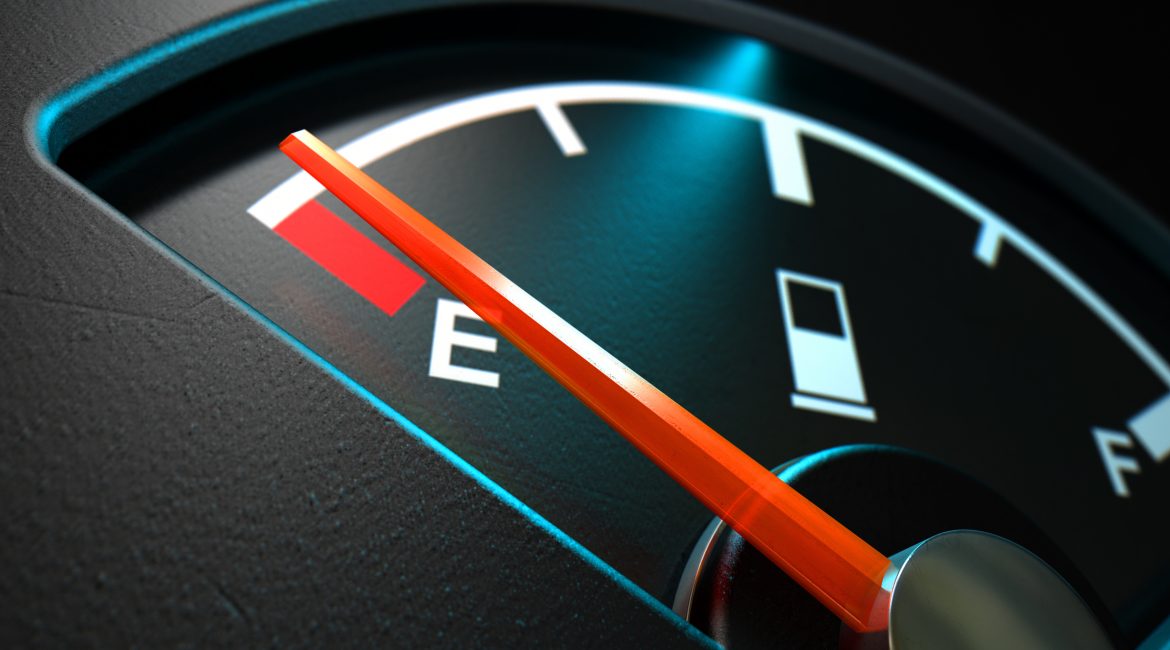When the end of the month draws nearer, it can be tempting to see how far your empty fuel tank can take you when the fuel light comes on. But what damage are you doing to your car in the long run?
Owning a car is expensive – trust us, we know. Whether it’s your monthly car insurance premium, regular maintenance and services or just plain old petrol (which these days, seems to be the most expensive of the three).
It can be downright painful sitting at the petrol station and watching the numbers on the fuel pump go higher and higher. You want to scream “Stop! That’s enough!” but you can’t because you have places to go and people to see and you need petrol to get there.
However, there seems to be a trend amongst drivers today that driving until there is a tiny drop of fuel in your tank is acceptable. Sure, mistakes happen and sometimes the petrol light comes on when you thought you still had a decent amount of fuel.
Related: 6 Car Dashboard Warning Lights You Should Never Ignore
But other times, it’s knowing that you’re pushing your car to the limit and doing it anyway. The latter is where it starts to become dangerous, for you and for your car.
How will I know if my car is low on fuel?
Most, if not all, cars today will have a petrol light that turns on when you’re low on fuel. This is an indication that you need to fill up ASAP, even though most car manufacturers design a light so that it goes off when you still have enough petrol (50km or so) to get to a petrol station.
Don’t let this lull you into a false sense of security – you could very well only have 9km left in your tank and that’s a risk you don’t want to take. Once your car is completely empty, the signs are rather clear. You will hear noises and shuddering coming from your engine and your car will start to falter from engine misfires. This is followed shortly by your car coming to a screeching halt.
What can happen if I run out of gas?
You could be stranded on the side of the road. And in a country like South Africa, that’s the last place you want to be. Although people won’t necessarily come for your car (they can’t exactly drive it anywhere) they could see you alone and come for your possessions or worse.
You could cause an accident. If you don’t get off the road in time before your engine stops, you could be the cause of a nasty and unnecessary accident (which is a great time to have comprehensive car insurance, FYI).
You can badly damage your car. A car running on empty is like you running without food: not good. Of course, the extent of the damage depends on how often you find yourself in this situation, which we hope is not very often.
Discover: On the Scene: What to Do After a Car Accident
How does driving on an empty fuel tank affect my car?
Your car is built to run on fuel, so it’s not out of this world to expect that driving it without any fuel is going to do some damage. Let’s look at the key areas that may be affected:
Fuel filter
A fuel filter is what helps petrol travel smoothly to your engine, causing your car to run. As you drive, it’s normal for dirt and debris to make their way into the fuel tank and in normal circumstances, this isn’t a huge issue.
But when you drive your car on an empty fuel tank, that debris and sediment can get pulled up into your fuel filter causing it to clog and compromise the flow of gas to your engine. This will slow the flow of gas to your engine – not an ideal situation.
Engine misfires
Your car’s engine survives on fuel, and an empty fuel tank compromises this. In the event that your tank is empty, your fuel pump may start to suck up air instead of gas, which means the engine isn’t getting the fuel it needs. Not only is this incredibly bad for your engine, but it could also cause more (expensive) car complications down the road.
Read this: Why Is My Car Shaking? A Mechanic’s Guide
Damaged fuel pump
Speaking of expensive complications: look after your fuel pump! If properly cared for, your fuel pump can last as long as your car does. If not, you’re looking at a costly and labour-intensive replacement.
A fuel pump is submerged in petrol when your petrol tank is full, which helps it to stay cool and lubricated. If your fuel pump overheats (and it very well may if you’re driving on an empty fuel tank) it can lead to irreparable damage.
Your Insurance Family,
Oneplan




